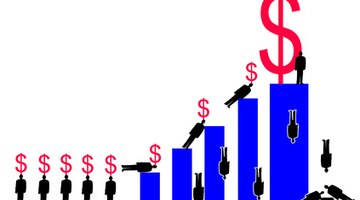For most people, economics is all about money and finance and issues of supply and demand. While these are important elements, economics is about much more. Economics provides a framework for understanding the actions and decisions of individuals, businesses and governments. It provides a means to understand interactions in a market-driven society and for analyzing government policies that affect the families, jobs and lives of citizens.
Function
Economics is the social science that examines how individuals, businesses and entire societies manage scarce resources. Resources are, by nature, limited. Only a finite amount of land exists, for example, and people do not have unlimited time to meet all of their needs and wants. Because no resources exist in unlimited quantities, societies must establish priorities and decide how best to allocate resources in such a way that meets as many needs and wants as possible.
Features
The two main branches of economics--microeconomics and macroeconomics-examine issues of resource allocation at different levels. Microeconomics focuses on the decisions of individual consumers and businesses, examining issues related to supply and demand and the prices of goods and services. Macroeconomics adopts an economy-wide perspective, examining the economy of an entire nation. Macroeconomics considers national economic issues, such as gross domestic product and unemployment rates.
Significance
For society, economics provides a scientific approach to analyzing and understanding government decisions for ensuring stable economic growth with low inflation and the highest possible level of employment. Economic methods also provide the tools by which policy analysts study the possible costs, benefits and effects of government policies in a range of areas, from national security to health care and education. Presidents appoint economists to advise them on national economic policy, as well as other policy areas. Outside of government, economic principles help guide the business decisions and actions that help foster a prosperous society.
History
The importance of economics in explaining the actions of governments and their role in fostering a prosperous society has been apparent from the discipline's earliest days. In the 18th century, when economics began to emerge as a field of study, it was referred to as political economy. Classical economists such as David Ricardo and John Stuart Mill both wrote books titled "Principles of Political Economy."
Expert Insight
Harvard economist Greg Mankiw, author of “Principles of Economics,” a textbook used in many college economics classes, points out that economists function as scientists, devising and testing theories, and as policy advisers. When economists try to explain the world, Mankiw writes, they function as scientists. When they try to improve the world, they are policy advisers.
Potential
The Economicshelp.org website observes that economics evolves and may help provide answers for dealing with policy issues that affect the future. It cited as examples such issues as combating global warming or climate change, how to eliminate poverty in the world’s developing nations, whether globalization helps or hinders the developing world, and societal life in a world in which oil has been depleted as an energy source.
Related Articles
References
- Economics Help: The Importance of Economics
- "Principles of Economics"; N. Gregory Mankiw; 2004
- "New Ideas From Dead Economists"; Todd Buchholz; 1990
Writer Bio
Shane Hall is a writer and research analyst with more than 20 years of experience. His work has appeared in "Brookings Papers on Education Policy," "Population and Development" and various Texas newspapers. Hall has a Doctor of Philosophy in political economy and is a former college instructor of economics and political science.











